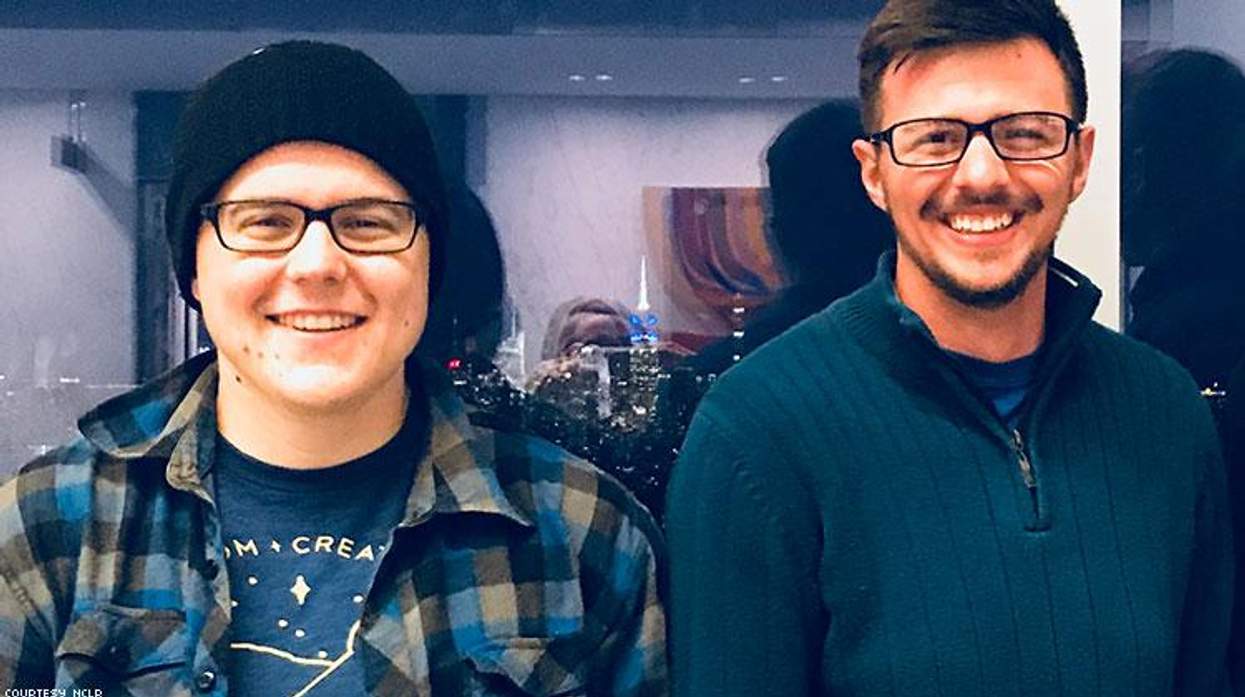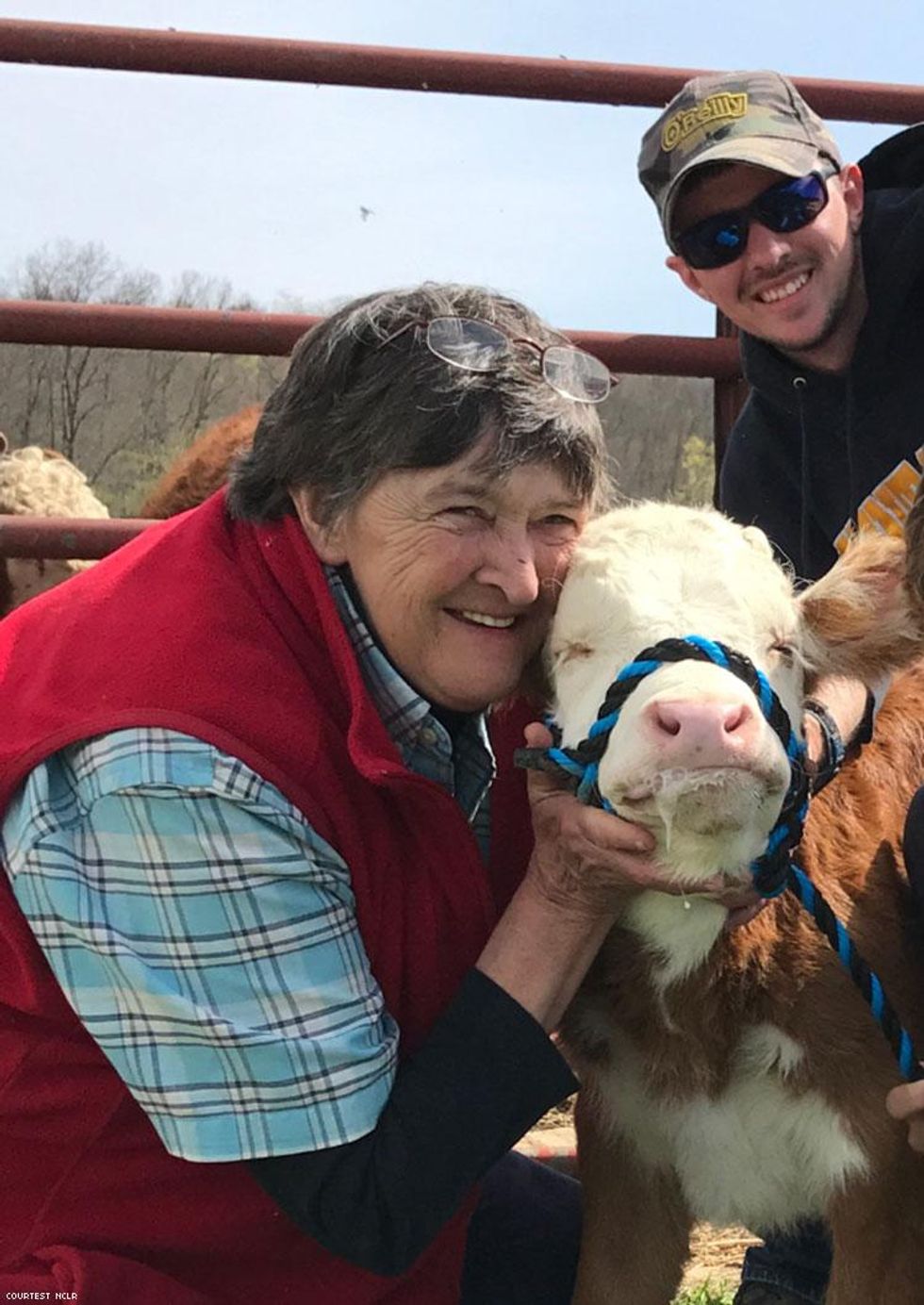Nicolas Talbott has been on what he calls "an emotional roller coaster" the past several months. But after a deep dip a few months ago, he feels he's now on an upward trend.
Talbott, 24, is a transgender man who has long dreamed of joining the military. After President Barack Obama lifted the ban on trans military members in 2016, allowing current ones to serve openly and scheduling enlistment of new trans recruits to begin the following year, Talbott realized that dream was no longer beyond his reach. He began talking to recruiters, made an appointment with one, and started readying himself for physical and classroom exams. He was then devastated when Donald Trump tweeted in July that he was reinstating the ban. "That was a very emotional time for me from the moment he sent those tweets," Talbott says.
Now, however, with the ban temporarily blocked by federal courts responding to several lawsuits (Talbott is a plaintiff in one of them, Stockman v. Trump), he's moving forward with his plans again. He has spoken with his recruiter several times in the new year and is completing the paperwork necessary for his enlistment in the Air National Guard.
"We are communicating on almost a daily basis to make sure everything goes as smoothly and swiftly as possible," Talbott tells The Advocate.
Talbott, who lives with his grandmother on a farm near Lisbon, Ohio, has wanted to join the military since he was in college at Kent State University, from which he graduated in 2012, also the year he began transitioning. "In college I realized that counterterrorism and national security are really my passions," he says. The armed forces seemed to be the ideal place to put those passions to work.
Besides passion, he says, he'll bring many other qualities to the military. "I'm always willing to learn and expand my boundaries," he says. "I am incredibly passionate about everything I do. I never say 'I can't.'"
Since leaving college, he's worked in a variety of jobs, including bus driver and deliveryman, without health insurance or other benefits. Now he's primarily a substitute teacher, while also helping his grandmother, Rhoda Dineen, on the farm, where they raise beef cattle. She is a great booster for him, he says: "She's always been incredibly supportive of everything I've done." His mother and stepfather are supportive as well.
When he started pursuing his military dream, he got in touch with some transgender veterans on social media. Then, when Trump announced the new ban, one of these veterans asked for anyone affected to reach out. That led to Talbott getting in touch with the National Center for Lesbian Rights and GLBTQ Legal Advocates and Defenders, the legal team behind two of the four lawsuits challenging the ban.
In all four suits, federal judges have issued preliminary injunctions against the ban, meaning it's blocked while the suits are considered in court. That meant the situation was returned to what it was before Trump's infamous tweets -- current troops would not be discharged for being transgender, and new trans enlistees could begin signing up January 1. The Trump administration sought to delay enlistment of new transgender recruits beyond that date but was turned down by courts and finally gave up on that point just before the beginning of the year. Over the next few months, the suits will go through the discovery phase in court, with the administration trying to prove the ban is in the national interest.
Talbott doesn't think the courts will be won over. "There is no reason why being transgender should be a barrier to military service," he says. He notes that many research studies have found trans people qualified to serve, and there have been trans people in the U.S. military for years, although they had to be closeted, while they have served openly in the armed forces of several other countries.
"Anybody who thinks transgender people are not as capable of serving in the military as anyone else has not looked at the research out there," he says.
If by some chance things don't work out, he says, he'll keep on with the substitute teaching. Eventually, in addition to his military service, he'd like to get a master's degree in criminal justice, with a concentration in global security. His bachelor's degree is in sociology, with a minor in criminology and criminal justice.
And he is confident his military dream will come true. "I am very optimistic," he says.

Nicolas Talbott (right) and his grandmother Rhoda Dineen on their farm.





































































Charlie Kirk DID say stoning gay people was the 'perfect law' — and these other heinous quotes